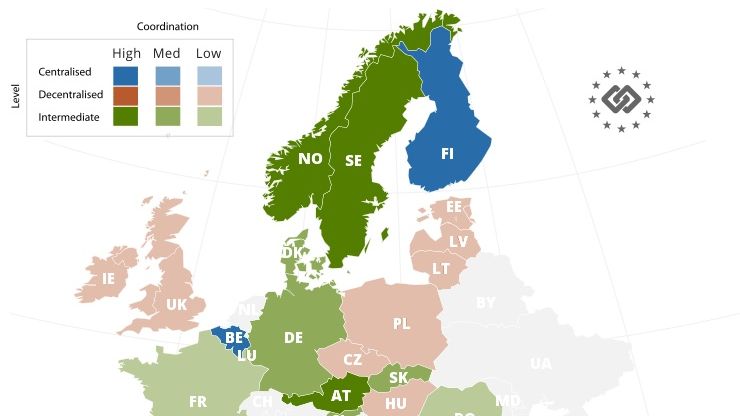
News -
Understanding Europe’s wage-setting mechanisms
Wages are an important component of
production costs which in turn affect the competitive position of companies
and, ultimately, of the economy as a whole. Wage
setting, however, is a complex and diverse process across the Member States. There is a multitude of different approaches as to
how wages are negotiated, how minimum wages are agreed upon in social partner
negotiations or set unilaterally by government, how wages are indexed so that
they reflect price developments or how they are adjusted. This process of wage
setting takes place at different levels: centrally in the form of government
recommendations; cross-sectoral negotiations; at sector level; or at company
level.
Moving towards a coordinated European-wide approach to wage setting requires a good understanding of the different wage setting systems in the Member States and recent changes to these systems. It also requires an understanding of the outcomes of collective wage bargaining that these different systems have produced, as well as the link between wage setting mechanisms and broader economic indicators. The new database allows users to chart trends and changes in level of wage bargaining and coordination, as well as outcomes, in terms of nominal and real percentage change over time, in a graphically useful and appealing user interface.
While wage setting mechanisms have remained rather stable overall in terms of the predominant bargaining level, a trend towards more decentralised bargaining within the existing system is apparent in many countries. Evidence indicates, however, that while wage-setting mechanisms may differ substantially from one another, they can lead to similar outcomes – in terms of pay and labour productivity. Conversely, similar mechanisms may result in different outcomes
Trend-setting agreements, in which certain sectors take the lead in the annual bargaining rounds while other sectors follow the agreements made there, are rather common in the Nordic countries. Higher-level laws or agreements at national or inter-sectoral level as a starting point for sector level negotiations can mainly be found in some of the southern European and some of the new Member States – although they have become less widespread during the past years. Company-level bargaining is the dominant feature of the system in the UK, Ireland and many of the new Member States. Sector level bargaining, with no centralised coordination is by and large a feature of the central and western European countries. Finally, four Member States (Belgium, Luxembourg, Cyprus and Malta) have indexation mechanisms in place.
NOTES TO THE EDITOR
The European Foundation for the Improvement of Living and Working conditions (Eurofound) is a tripartite European Union Agency, whose role is to provide knowledge in the area of social and work-related policies. Eurofound was established in 1975 by Council Regulation (EEC) No. 1365/75.
For more information about Eurofound and its work, and free access to all our data and findings, visit our website and follow us on these social media channels: Twitter, Facebook, Google+, YouTube, or Flickr.
